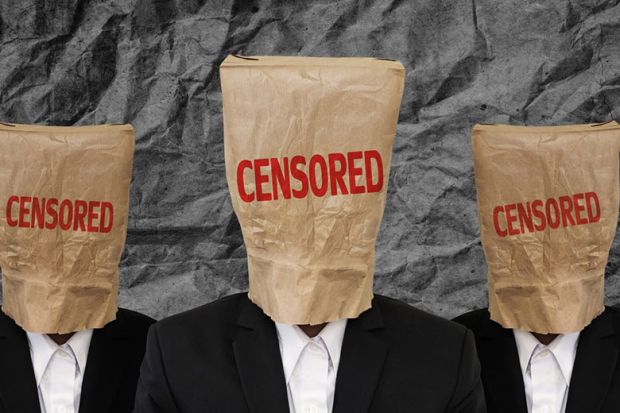We will be taking a motion supporting academic freedom to discuss sex and gender to the 2019 University and College Union (UCU) congress next month. While the union has a stated position in favour of academic freedom in general terms, it has shied away from making any statement on the harassment of feminist academics.
Academics who do not adhere to a particular line on gender and transgender issues have suffered intimidation by trans activists, including students and colleagues who seek to silence them.
These scholars have faced campaigns of blacklisting and smears, no platforming and professional disinvitations, organised efforts to get them fired, and rape and death threats. The level of hostility, hatred and often overtly misogynistic bullying faced by these scholars does not compare to anything we have seen in other debates within academia, even the most contentious.
The divide between trans activists and their opponents is a split within the left, rather than a left-right divide. Trade unionist women, led by A Woman’s Place UK, have led grass-roots calls for proper consultation with women regarding proposed changes to the Gender Recognition Act. They have consistently worked with trans women who share their concerns regarding, for example, same-sex exemptions in the Equality Act, women’s sports and child safeguarding, yet trans activists have attempted to shut down their meetings, using tactics such as bomb threats to venues.
Long-standing gay rights campaigners have demanded that Stonewall reconsider its approach to transgender policy and engage fully in debate on the issue. A recent Open University conference on prison reform was cancelled after being targeted by trans activists because the director of the Centre for Crime and Justice Studies opposed housing trans women with female prisoners.
The UCU has rightly called out threats to academic freedom posed by government interference, but it has not commented on the silencing of dissent on this issue, which has grave potential to damage the wider progressive movement.
This is a difficult issue for the union because activists are divided on the substantive issues. However, the concept of academic freedom is meaningless if it does not extend to those with whom one disagrees. The UCU’s official statement on academic freedom recognises that the issue is bound up with broader civil liberties and human rights, and that academics must be free to express their opinions on matters of public interest, which may touch upon controversial or sensitive topics. This statement is hollow if not applied consistently.
As trade unionists, political activists and critical scholars, we are as equally motivated by a concern for social justice as our critics, though we see the issues differently. We recognise the discrimination faced by trans people and the importance of defending their human rights.
It is a sound principle of both political and academic work that we should listen to the voices of people from marginalised groups when discussing issues that affect them. The language used to define sex and gender, and the implications of these definitions for issues of public policy, including healthcare, education and child safeguarding, affects us all.
It is thus misleading to construe disagreements on these issues as a debate between “feminists” and “trans people”. Indeed, trans people who have asserted that “gender identity” does not supersede biological sex and should not replace sex as a protected characteristic have also faced bullying by activists. A culture of silencing is dangerous and counterproductive, particularly for vulnerable groups. This has been exposed most sharply by recent resignations from the Tavistock Gender Identity Clinic of doctors concerned about the hormonal and surgical procedures offered to children.
In the current climate, even articulating any of the following points as a basis for discussion can lead to accusations of transphobia, and to bullying and harassment: Humans have two sexes, male and female; females are the sex that produce large immobile gametes called ova; males are the sex that produce small mobile gametes called sperm; women are adult human females; women do not have penises; homosexuality is same-sex attraction; a transwoman who transitions as an adult has not always been female.
At a time when the recent gains of the feminist movement and the gay rights movement are under attack by the forces of the far right, it is vital to distinguish between those who seek to uphold the rights of all groups who continue to suffer from patriarchal and racist oppression, and those who uphold an explicitly sexist and racist ideology.
Authoritarian anti-intellectualism on the far right is unlikely to be defeated by its mirror image on the left, and we believe that defending academic freedom, while opposing all forms of authoritarian politics, is a basic function of our union.
Alice Sullivan, Judith Suissa, and Lesley Gourlay are professors at the Institute of Education at UCL and Holly Smith is a lecturer at the Institute of Education at UCL.
Register to continue
Why register?
- Registration is free and only takes a moment
- Once registered, you can read 3 articles a month
- Sign up for our newsletter
Subscribe
Or subscribe for unlimited access to:
- Unlimited access to news, views, insights & reviews
- Digital editions
- Digital access to THE’s university and college rankings analysis
Already registered or a current subscriber? Login




